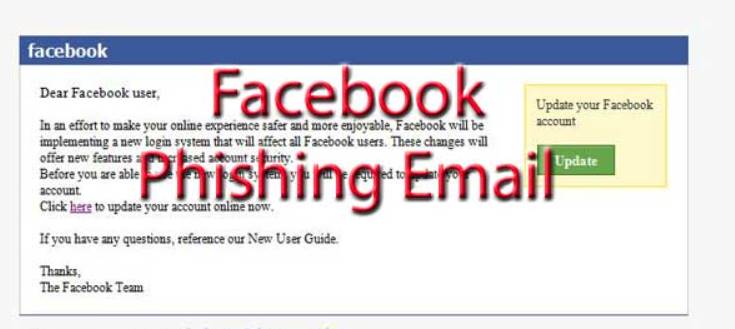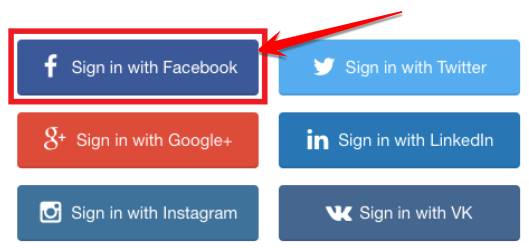With Facebook’s 2.8 billion monthly active users, this is fertile ground for Hackers. Despite leaked security updates in 2018 affecting more than 30 million users, more than 500,000 phone numbers were still leaked in 2019. Facebook hacking is growing in popularity and image. greatly benefit users.
| Join the channel Telegram of the AnonyViet 👉 Link 👈 |
Although Facebook’s security has improved drastically after these leaks, hackers still target individual accounts.
So how do hackers infiltrate Facebook accounts? Do you easily fall victim to them? And how can you avoid being hacked facebook?
Hack Facebook easily and quickly
According to a 2015 report by New York Post, about 160,000 Facebook accounts are compromised daily. That number will increase today.
While you can blame Facebook for this breach of privacy, Facebook isn’t technically responsible for most of these attacks. Facebook account hackers use a number of means to gain control of vulnerable users’ profiles. For the most part, they take advantage of the social and psychological naivety of users.
You could even get hacked through one of your Facebook friends or close acquaintances.
Facebook hackers can target accounts with influential friends or followers like artists, soccer players, and more. No one is safe. No social network is completely secure, not even Twitter. Tech giants, political figures and celebrities have all been targeted on social media.
Unlike other social networks like Twitter and Instagram, where strangers are more likely to connect with each other, Facebook users connect more for a closer relationship.
Data about Facebook’s transparency indicates that 120 million accounts on the platform are fake. By the end of 2020, the company had 234.5 million spam content under control. Obviously, there are still many virtual accounts in existence.
Most Facebook Hackers impersonate their victims and scam their friends and followers after hacking their accounts. As a result, the victim’s friends are often the target rather than the account owner itself.
After taking over the account, the Hacker can take over the victim’s business page, so a successful Facebook account takeover is also harmful to businesses that depend on Facebook.
How cybercriminals attack Facebook accounts
Facebook hackers use several ways to take over accounts. One of the most common is phishing and Social Engineering.
So, although we can’t directly teach you how to hack Facebook accounts, you still need to know how Hackers use to hack other people’s Facebook. And if you are the victim of a hacker, you know how to fix it.
Phishing and Social Engineering
If you leave your phone number or email address public on your Facebook profile, you’ll be more vulnerable to phishing attacks.
Social Engineering is often associated with Phishing, Hacker sends a fake link to the victim. For example, they can send a message asking the victim to log into their Facebook account via a link for the purpose of voting for their favorite contestant or checking who visits your facebook the most….
When you click on the link and enter their Facebook username and password, the Hacker gets that information. If the victim does not realize this is a fake link, the hacker can log into your account. Then the hacker changes your login information and takes over the account.
Hackers can also change the password, change both the email and the login phone number.
Unfortunately, many Facebook users fall victim to this trap. And it’s often too late before they realize they’ve lost access to their Facebook account because the hacker changed their login information.
Hiding personal contact information such as phone numbers and email addresses, dates of birth, etc. can be an effective precaution, although not always practical.
Be careful with the type of messages (SMS, emails and calls) you respond to, no matter how formal they are. Status fake BrandName SMS going on is very complicated. Don’t click on suspicious links. Even if you’re familiar with them, be careful not to share your login information with third-party apps or websites.
Brute Force Attack Hack Facebook Password
Hackers use Brute Force follow 2 manual and automatic methods to combine the device’s password. To support them, attackers use a number of string generators to guess passwords. Easy-to-guess passwords usually follow rules regarding personal information.
Surprisingly people now make this process easy for hackers. NordPass recently announced the top 200 passwords of 2020 and 73% of them are extremely easy to guess.
The less complex the password, the more vulnerable it is to attack.
Unfortunately, Facebook doesn’t have an experimental login limit. So an attacker can try simple password combinations on your account as many times as he wants.
To prevent a password sniffer, make sure you use strong passwords that are hard to guess. The combination of special characters with upper and lower case letters is very effective.
Afterward use Facebook’s two-factor authentication. Therefore, even if an attacker guesses your password correctly, they cannot access your account without your permission.
Facebook Login Function and Spyware
Some apps ask for permission to access your Facebook credentials. Some of these apps track you. In worse case, they can take over your account to spam your friends.
Hackers can also use specialized spyware links and applications to install spyware on your computer.
Such spyware can then access your Facebook account to perform actions without your knowledge. Infected links and applications can execute scripts orchestrated by hackers.
To prevent this attack is very easy. Denying untrusted apps access to read your Facebook data is the way to prevent that.
Never click on a suspicious link and avoid untrusted apps as they can put malware on your computer or phone and affect your Facebook account.
Revealing passwords and usernames
If your phone or browser saves your login information, you are at risk of being hacked. Tool to extract Password from browser As an example, with just a few clicks, your password will be exported to a text file.
Logging into your Facebook account via the public Internet or a shared computer can also put your account at risk.
When you use a shared computer, you may forget to sign out. It is an opportunity for others to hijack your Facebook account because they can get personal information about you from your logged in account.
Attackers can also use session cookies to track you over public WiFi.
However, when you save your login information, other people using your computer can log in to your account without your permission. Remember, you cannot trust anyone.
How to prevent Hackers from hacking your Facebook account
How Do You Protect Yourself From Hackers Hacking Your Facebook? Here’s what you need to remember.
- Don’t click on suspicious links. Watch out for phishing messages and emails.
- Avoid saving login information on your smartphone and browser.
- Use a combination of special characters and numbers to create your password.
- Hide sensitive information like phone numbers and email addresses from the public on Facebook. You should keep your account private.
- Don’t give untrusted apps or websites access to your login information.
- Avoid using Facebook over public networks and shared computers.
- Do not share login information with third parties.
- Use Facebook’s two-factor authentication on your account.
- Never click on a third-party password reset link.
How to fix hacked Facebook account
Getting hacked on Facebook can make you uncomfortable. Sometimes, Hackers use the slightest information about the victim to gain control of their account.
Recovering a hacked Facebook account can be very difficult. However, it is better to take proactive measures to protect your account than to wait for a hack to start protecting.
If you suspect that your Facebook account has been hacked, you need to perform account recovery within 24 hours to prevent Hackers from taking control of your account.



